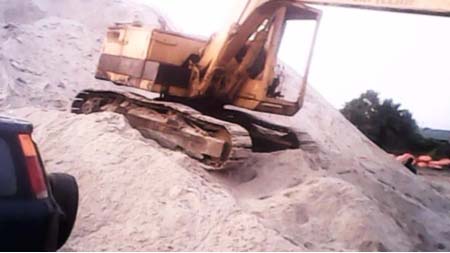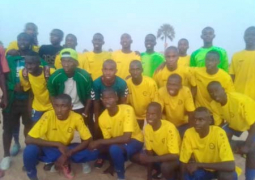
A
research report, released by the United Nations University Institute for
Natural Resources in Africa (UNU-INRA), is urging relevant stakeholders in the
natural resources management sector in Africa, to consider limiting the
activities of sand dredgers to non-fishing communities.
This,
the report indicated, can be achieved by ensuring that licenses are given to
sand dredgers to operate only in communities that are not engaged in fishing.
The aim is to help reduce the negative effects of sand dredging on fishing.
The
objective of the research was to examine the environmental and economic burden
of sand dredging on artisanal fishing.
The
findings, summarized in a policy brief entitled “Alleviating the Impact of Sand
Dredging on Fishing”, showed that sand dredging activities have led to the
release of solid substances into water bodies, and this has had negative impact
on aquatic resources, as a result of water turbidity.
The
activities of the sand dredgers, the report indicated, also affected the income
of the fishermen.
According
to the researcher, Dr Fatai Abiola Sowunmi, the results revealed that fishermen
in the dredging areas incurred higher costs per day and low average gross
profit than fishermen in the non-dredging areas studied.
The
high daily operational costs, Dr Sowunmi explained, may be attributed to costs
incurred on long distance travels to catch fish in order to avoid the dredging
areas.
Over-exploitation
and dredging activities were cited as possible reasons for the low daily
average gross profit recorded in the dredging areas.
The
study, therefore, encouraged fishermen to go into fish farming to supplement
their income.
In
his comments on the findings, Dr Elias T. Ayuk, Director of UNU-INRA,
underscored the importance of the Institute’s research findings on policy
decisions.
He
stated: “Our mandate at UNU-INRA is to support policymakers in Africa with
evidence-based options for policy considerations.
“The
findings of this particular study emphasize the need to monitor and regulate
the activities of sand dredgers, so as to reduce the impact of their operations
on fishing.”
The
policy brief also recommends the intensification of family planning campaigns
in fishing communities to help reduce household sizes in these communities.
This
is because the research findings also showed that large household sizes was
predominant among the fishing communities and this had repercussions on their
incomes.




